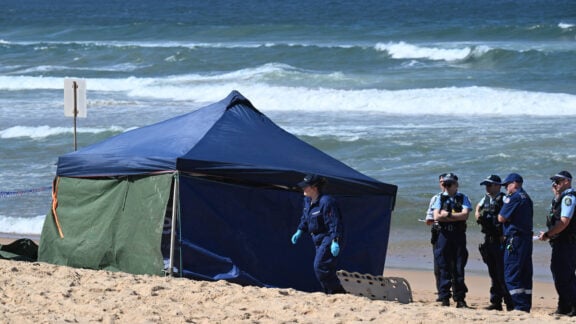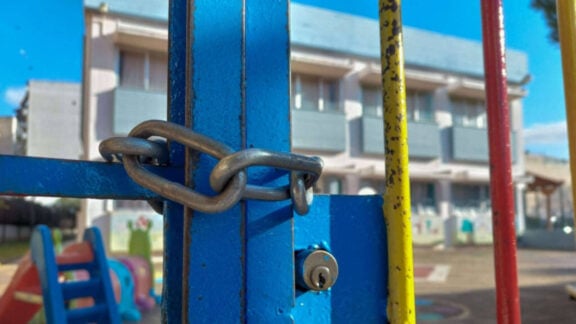Woolworths says its supermarket business is normalising after several years of COVID-related disruptions, but cost-of-living pressures are impacting its Big W business.
The supermarket chain and retail group on Wednesday announced it had made a $1.62 billion full-year profit after tax, up 4.6 per cent from the prior year, a result basically in-line with expectations.
Revenue increased 5.7 per cent to $64.3 billion for the 52 weeks ended June 25, compared to the 52 weeks prior.
Australian supermarket sales were up 4.7 per cent to $41.4 billion, with ecommerce sales returning to growth after initially falling when the COVID lockdowns ended.
Woolworths Group CEO Brad Banducci said the financial year marked a return to “relative stability” following years of disruption during the pandemic.
Most notably Woolies experienced a normalisation of shopping habits, with customers shopping more frequently during the weekends and evenings.
“Despite the more stable environment, our overall customer experience was inconsistent, impacted by lingering supply chain challenges, and more recently by the impact of inflation on value for money perceptions,” Mr Banducci said.
Food-price growth began to moderate in the second half, with prices even dropping for meat, fruit and vegetables.
Woolworths expects prices to keep rising in some packaged categories.
Big W total sales were up eight per cent to $4.8 billion, but its trading environment “changed dramatically” between the first half and the second half, Mr Banducci said.
Sales dropped in the second half – even beyond executives’ expectations – as consumers cut back on discretionary items, particularly in the fourth quarter.
“The sector became extremely competitive with higher levels of promotions and discounts,” said Mr Banducci.
So far those trends have continued in fiscal 2024, with solid growth in Woolworths’ food businesses but Big W sales down six per cent on the prior year.
“Customers are cautious, putting fewer items their baskets,” Mr Banducci said.
But loyal customers are continuing to shop with Big W and some categories like Everyday Essentials continue to perform strongly.
Woolworths predicts the consumer environment to remain challenging in 2023/24, with customers continuing to cut back on non-essential items.
Woolworths declared a final dividend of 58 cents per share, up from 53 cents a year ago.
At the same time, Woolworths has reviewed every piece of equipment in its businesses and has cut the bonuses of senior managers after safety lapses resulted in the deaths of two workers.
In December, 39-year-old contract cleaner Malerato Harrison was killed when she was crushed against a wall by a floor polisher while cleaning a Woolworths store in Newcastle about 5am.
And on June 27, Woolworths employee 35-year-old Basel “Baz” Brikha was killed and two other workers injured after they were hit by pallets when a pallet-stacker was unjammed at a distribution centre in western Sydney.
Woolworths CEO Brad Banducci faced hard questions about the warehouse death during an earnings call on Wednesday from Bank of America analyst David Arrington, who accused the supermarket giant of having distribution centres that were “a mile behind benchmark” and “nowhere near the level of standard procedure”.
“Forget about productivity – we’re talking about the basic essentials of keeping workers safe. What should we as investors expect?” Mr Arrington said.
“I’m assuming in the least, none of your management team are going to get bonuses this year?”
Mr Banducci said the fatalities were the only two he could remember in 10 years with the company, although there were also two near-misses during the financial year.
He said the death of the contract cleaner was being investigated.
“There’s a lot of extenuating circumstances, but we feel accountable for what happened.”
Woolworths has set up a cleaning service it uses in 76 of its supermarkets so it can manage the equipment and no longer has the pallet-stacker involved in the Sydney accident.
Beyond that, every piece of equipment had been reviewed at Woolworths, because both deaths were equipment related, Mr Banducci said.
“We’re coming back more broadly on the topic of safety and how we validate all of our safety procedures,” he said.
Mr Banducci said he didn’t think someone’s life could be monetised but, as a starting point, all managers group-wide would have their bonuses reduced by 10 per cent this year.
There could be more consequences as the investigations unfolded, he said, adding the “terrible” deaths overwhelmed all of Woolworth’s positive achievements over the year.
Source: AAP







